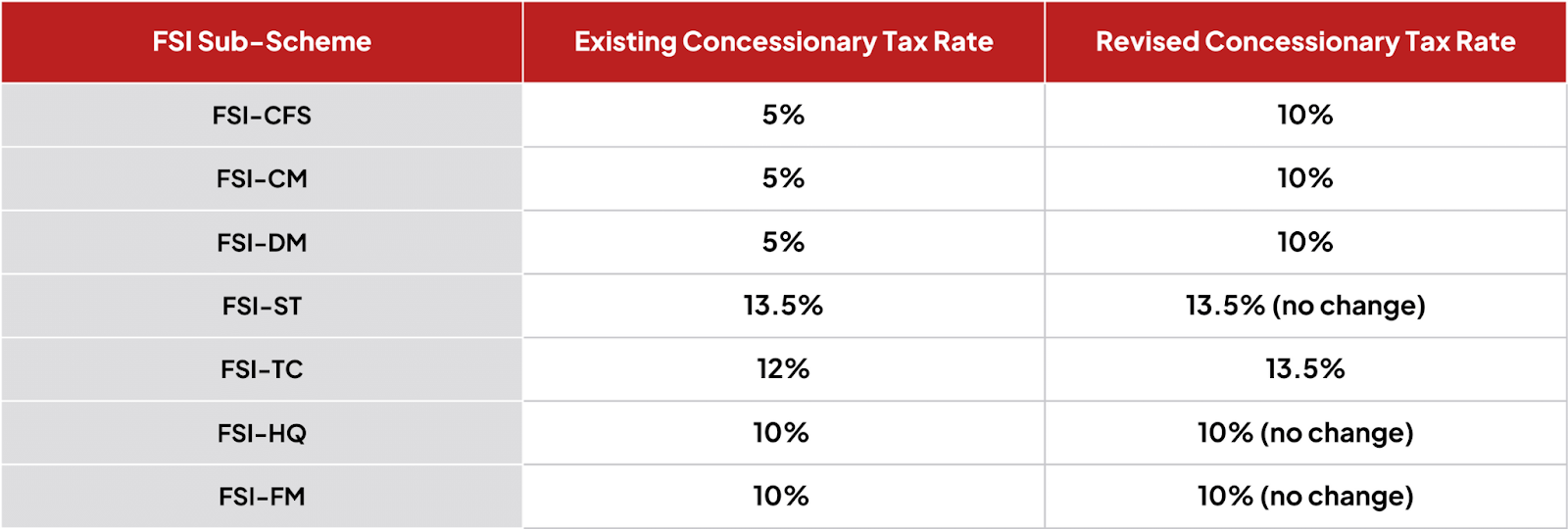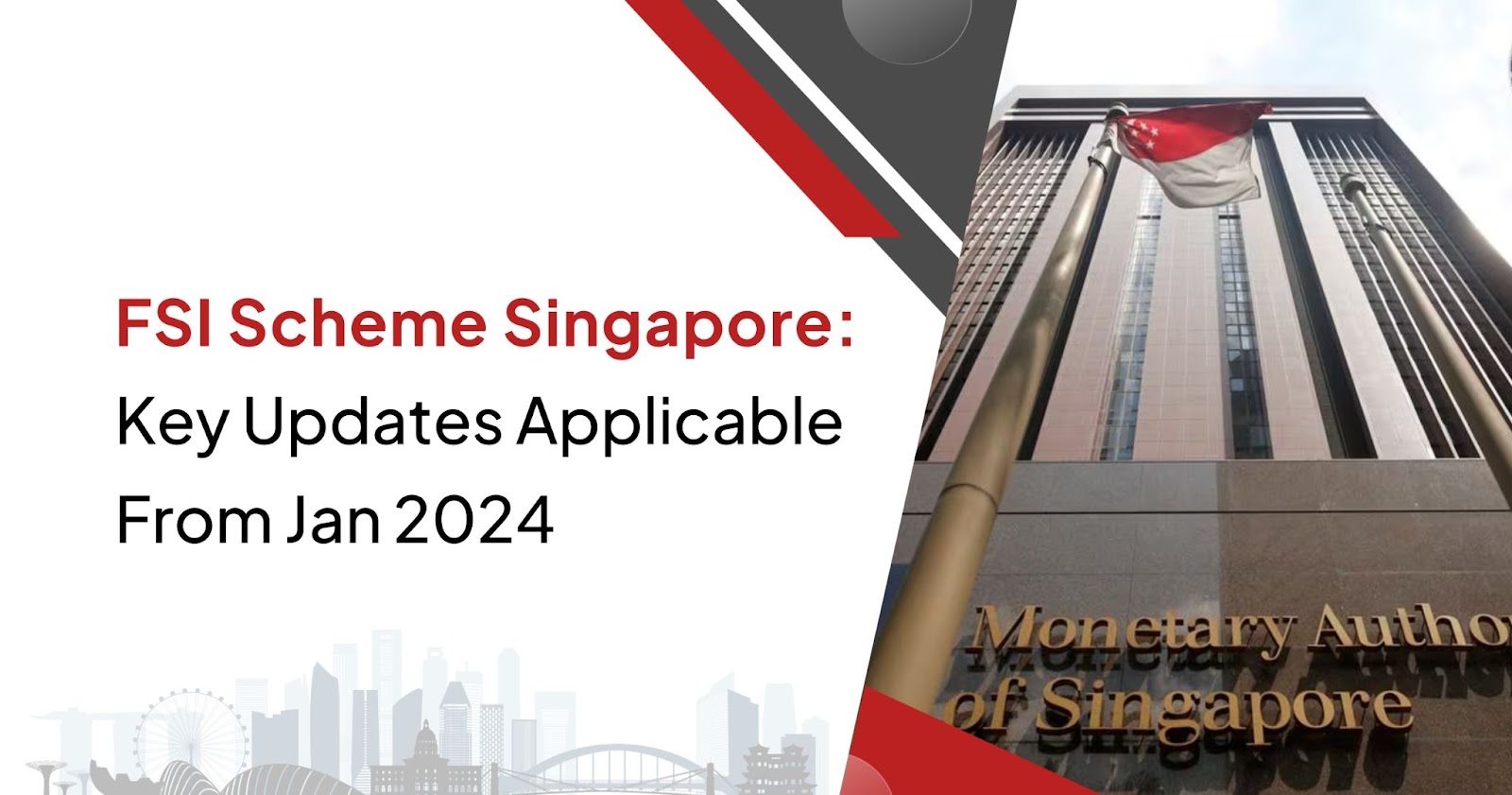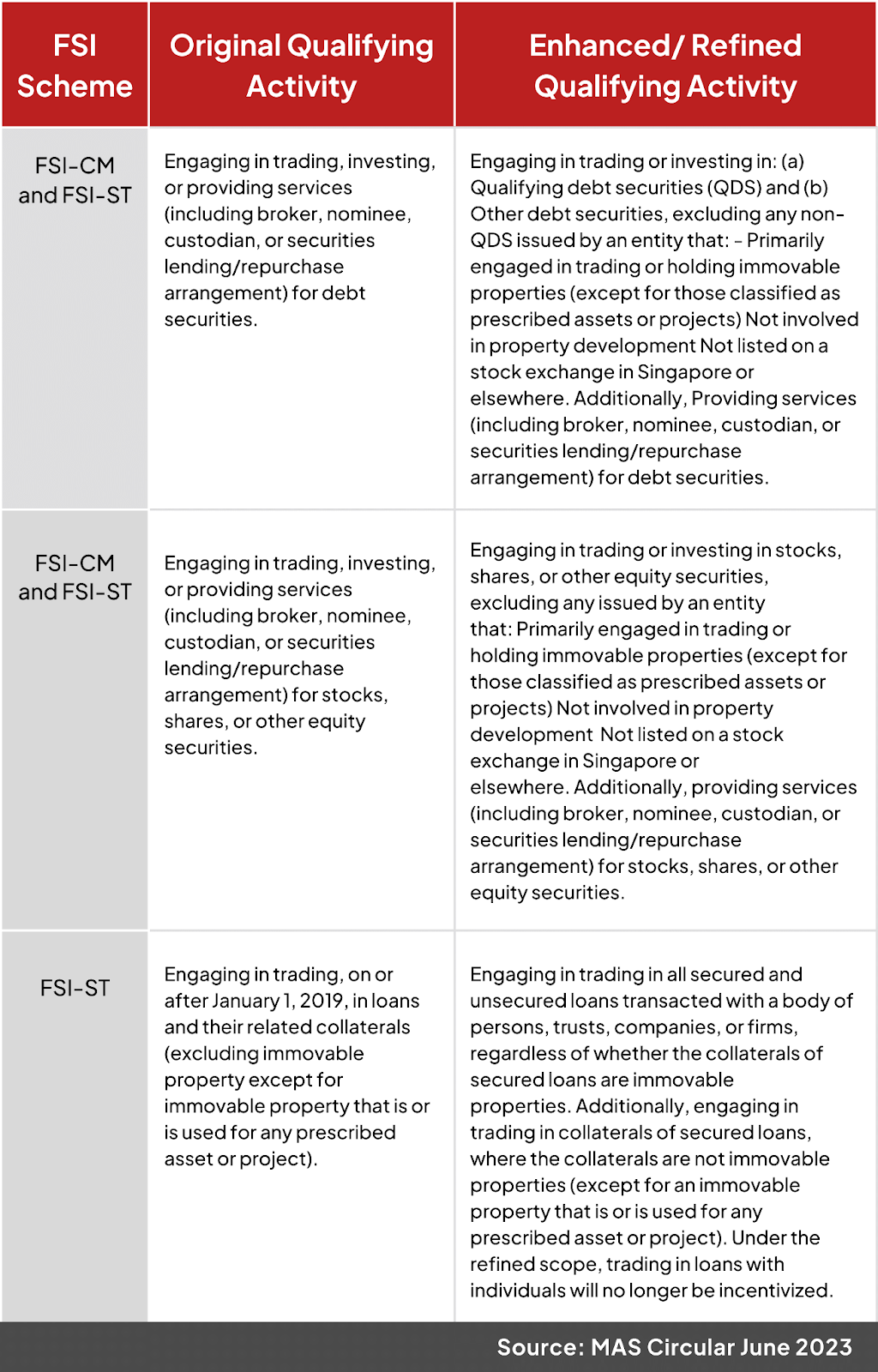The Financial Sector Incentive (FSI) Scheme, a cornerstone of Singapore’s financial sector development strategy, is revamping to further enhance its attractiveness and effectiveness.
Originally introduced in 2002, the FSI Scheme has been instrumental in attracting and retaining global financial institutions to Singapore, fostering a vibrant and competitive financial ecosystem. With its extension until 2028, the FSI Scheme is set to continue playing a pivotal role in Singapore’s financial sector growth.
In addition to the tax rate changes, the FSI Scheme for 2024 also introduces other refinements, such as enhanced eligibility criteria and a more flexible approach to qualifying activities. These enhancements are designed to ensure that the FSI Scheme remains aligned with the evolving needs of the financial sector and continues to attract high-value-added financial activities to Singapore.
Inside This Article:
What is the FSI Scheme?
The Financial Sector Incentive (FSI) Scheme is a tax incentive program designed to attract and encourage financial institutions to establish or expand their operations in Singapore. The scheme offers a range of benefits, including a concessionary tax rate on certain income, to eligible institutions that undertake qualifying activities.
Seven Sub Schemes under the FSI
The Financial Sector Incentive (FSI) Scheme encompasses seven distinct sub-schemes catering to a broad spectrum of financial sector activities. These sub-schemes are categorized into two tiers: Enhanced-tier and Standard-tier.
Enhanced-Tier Awards:
- FSI-Credit Facilities Syndication (FSI-CFS): This sub-scheme encourages the syndication of credit facilities in Singapore, fostering a vibrant debt capital market.
- FSI-Capital Market (FSI-CM): This sub-scheme promotes the development of Singapore as a leading capital market hub by supporting activities such as securities issuance, underwriting, and broking.
- FSI-Derivatives Market (FSI-DM): This sub-scheme aims to strengthen Singapore’s position as a derivatives trading center by incentivizing the establishment and expansion of derivatives-related activities.
Standard-Tier Awards:
- FSI-Standard Tier (FSI-ST): This sub-scheme provides a general incentive for financial institutions to establish or expand their operations in Singapore, encompassing a wide range of activities.
- FSI-Trustee Companies (FSI-TC): This sub-scheme promotes the development of Singapore as a center for trustee services by incentivizing the establishment or expansion of trustee companies.
- FSI-Headquarter Services (FSI-HQ): This sub-scheme encourages financial institutions to establish their regional or global headquarters in Singapore, supporting activities such as general management, risk management, and training.
- FSI-Fund Management (FSI-FM): This sub-scheme fosters the growth of Singapore’s asset management industry by incentivizing the establishment or expansion of fund management activities.
Updated Concessionary Tax Rates for FSI Scheme from 2024
FSI Scheme has introduced revised concessionary tax rates for new and renewal awards approved on or after 1 January 2024.
The revised tax rates are as follows:
(Existing award holders will continue to enjoy their current concessionary tax rates until the expiration of their existing awards.)
Enhanced Qualifying Activity under the FSI Scheme in 2024

Conclusion
The Financial Sector Incentive (FSI) Scheme has played a significant role in attracting and retaining global financial institutions to Singapore, fostering a vibrant and competitive financial sector. With the refinements, including the revised concessionary tax rates and enhanced qualifying activities, the FSI Scheme remains a compelling incentive for financial institutions seeking to establish or expand their operations in Singapore. As Singapore’s financial landscape continues to evolve, the FSI Scheme will undoubtedly continue to adapt to meet the changing needs of the industry.
FAQs About Financial Sector Incentive Scheme Updates
- To be eligible for the FSI Scheme, financial institutions must meet certain criteria, such as having a valid financial institution license issued by the Monetary Authority of Singapore (MAS) and demonstrating a commitment to establishing or expanding their operations in Singapore.
- Financial institutions can apply for the FSI Scheme through the MAS website. The application process involves submitting a detailed proposal outlining the institution’s activities in Singapore and the expected benefits to the financial sector.
- The processing time for FSI applications typically takes around six months. However, the actual timeframe may vary depending on the complexity of the application and the institution’s track record.
- The FSI Scheme offers a range of benefits to eligible financial institutions, including concessionary tax rates, exemption from certain regulatory fees, and access to government grants and co-funding programs.
- Financial institutions must maintain their FSI awards by adhering to the terms and conditions of the award and continuing to undertake qualifying activities in Singapore.
- If a financial institution no longer meets the eligibility criteria for the FSI Scheme, it may be required to repay the concessionary tax benefits they have received.
Maximize Your FSI Scheme Benefits
Stay ahead of the curve with expert tax guidance from Rikvin.



